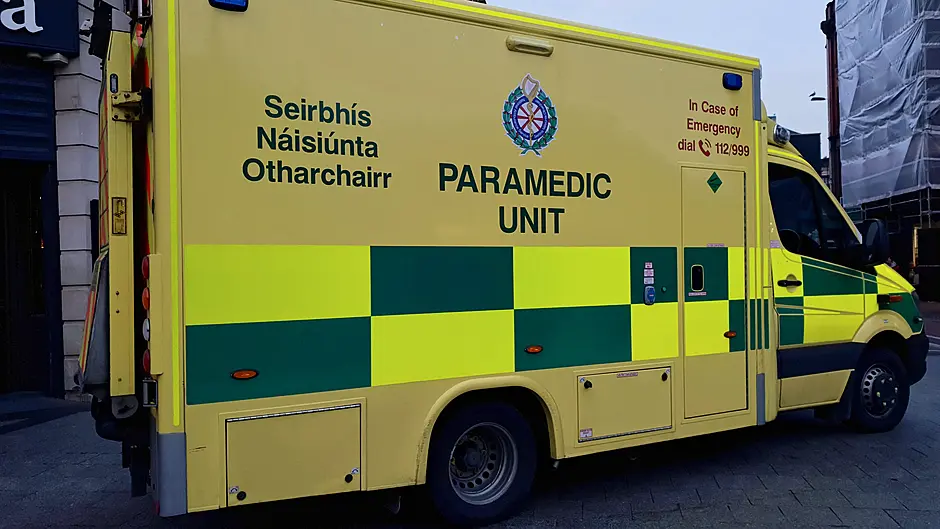A LACK of ambulance staff has seriously undermined emergency cover in West Cork, according to a worried paramedic who said that on a recent busy weekend, two large towns had no night-time cover.
A consistent shortage in staff needed to operate the region’s eight ambulances has resulted in reduced day-time and night-time cover for the people of West Cork, he told The Southern Star, leaving the region with inadequate cover.
There are four ambulance bases in West Cork – Skibbereen, Clonakilty, Bantry, and Castletownbere – but on the weekend of July 29th to 30th, the paramedic said there was no night-time cover in Skibbereen or Castletownbere. This, he said, happens frequently throughout the region, which puts the entire system under pressure.
He said there should be four ambulances working the day-time shift and four ambulances working the night-time shift in West Cork.
The regulations state that two paramedics should crew every ambulance, so, over the course of a week, paramedics working 39-hour shifts are rostered to cover the seven day and seven night-time shifts.
‘There are supposed to be 10 personnel in each of the four West Cork bases, but because the number has to account for holiday and sick leave, as well as maternity and paternity leave, it’s hard to find the requisite eight paramedics to cover the shifts, and if anyone is missing, the system doesn’t operate as it should.’
The paramedic claimed it is probable that each base doesn’t have the full complement of 10 to begin with. ‘It’s a tough job, so recruitment isn’t what it should be,’ he said.
‘Up to about eight years ago,’ the paramedic claimed, ‘ambulance cover was never dropped because management had more staff available to provide cover.’
He believes the workload has become more intense and the problem is exacerbated by the fact that some ambulance personnel were promoted to management, while other roles were created, which took people from the frontline service – and many were never replaced. The paramedic attributed the intensification of the workload to the fact that call volumes are increasing year-on-year.
He said management repeatedly appeals to staff to fill vacancies in the roster in West Cork, but the intensity of the work is impacting staff’s willingness to do more overtime.
The paramedic explained that in each of the four West Cork bases there are two ambulances – a day ambulance and a night ambulance – as well as an advanced life support (ALS) car, with an advanced paramedic, based out of Dunmanway.
But in the last few years these advanced paramedics are being rostered to cover the ambulance service, which can put the ALS car temporarily out of use.
‘In theory, there should be 40 paramedics in West Cork, plus four ALS crew, but we cannot establish how many people are actually working,’ he said.
‘While we might not know the actual number, we can tell that the system is not working because there are periods in the day and night shifts that are not being covered.
‘Lack of cover, such as the July weekend in Skibbereen and Castletownbere, is not unique,’ he said. ‘In fact, the frequent lack of shift cover is frightening.’
As a result, he claims, a lot of service calls are not being dealt with within the appropriate timeframe.
‘Ambulances are coming from Cork city and Kerry to West Cork, which seriously undermines the response times and health outcomes,’ he said. ‘Equally, when the city service is under pressure, ambulances from West Cork are being directed to the city, North Cork and Kerry.
‘It’s worse it’s getting,’ the paramedic concluded. ‘Staff are stressed beyond belief.’
In response, the National Ambulance Service (NAS) said it mobilises responses to calls for assistance based on patient needs. ‘Ambulances may travel to and be dispatched from various locations irrespective of their base – they are not confined to work in geographical areas,’ they said. ‘This means that an ambulance based in Killarney may be dispatched to a call in Cork if it has just handed over a patient in Cork University Hospital and it is the nearest available ambulance to the incident.’
The current model is ‘international best practice’ and has eliminated previous practices where the nearest ambulance was not always dispatched.
The NAS added that the current Rapid Response Vehicle (RRV) operating from Bantry during theday shift by a single practitioner will be upgraded to an emergency ambulance for the area later this year.
‘This will increase our patient-carrying capacity,’ a spokesperson added.










